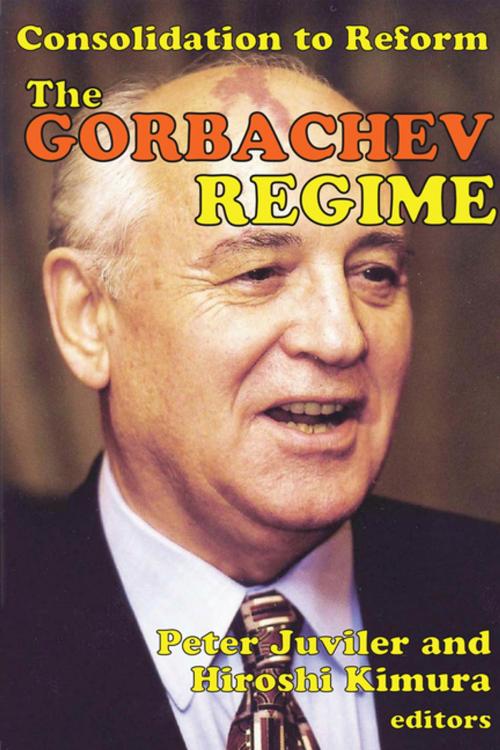The Gorbachev Regime
Consolidation to Reform
Nonfiction, Social & Cultural Studies, Political Science, Politics, Leadership| Author: | Hiroshi Kimura | ISBN: | 9781351303866 |
| Publisher: | Taylor and Francis | Publication: | September 29, 2017 |
| Imprint: | Routledge | Language: | English |
| Author: | Hiroshi Kimura |
| ISBN: | 9781351303866 |
| Publisher: | Taylor and Francis |
| Publication: | September 29, 2017 |
| Imprint: | Routledge |
| Language: | English |
In the early days of Gorbachev's rise to power in the Soviet Union, an international group of U.S. and Japanese authorities probed the issues and forces that shaped a mammoth struggle within the Soviet Union. This book examines Gorbachev's reforms--the extent of their dramatic changes and the sobering evidence of their limits. The contributors' assessments range from wonder at the new atmosphere and expressive possibilities, to recognition of the reforms' reversibility, increasing difficulty, and the long road ahead. This is a fascinating contemporary review of factors that led to the demise of the Soviet Union only a few years later."Perestroika," the transformation of Soviet society and economic relations, epitomized Gorbachev's remedy for the ailing Soviet economy, which developed into a redefinition of Soviet socialism. Gorbachev emphasized that the success of reform depended not only on the technology and money, but also to succeed the reforms must overcome Stalin's legacy of bureaucratic centralism and enlist the creative energies of the Soviet people.This volume explains why the strength and nature of the reform coalition and anti-reform opposition, the limits and prospects of reform, and the compatibility of decentralizing reforms within the centralized one-party Soviet system and the implications of reforms for Soviet relations with the rest of the world.
In the early days of Gorbachev's rise to power in the Soviet Union, an international group of U.S. and Japanese authorities probed the issues and forces that shaped a mammoth struggle within the Soviet Union. This book examines Gorbachev's reforms--the extent of their dramatic changes and the sobering evidence of their limits. The contributors' assessments range from wonder at the new atmosphere and expressive possibilities, to recognition of the reforms' reversibility, increasing difficulty, and the long road ahead. This is a fascinating contemporary review of factors that led to the demise of the Soviet Union only a few years later."Perestroika," the transformation of Soviet society and economic relations, epitomized Gorbachev's remedy for the ailing Soviet economy, which developed into a redefinition of Soviet socialism. Gorbachev emphasized that the success of reform depended not only on the technology and money, but also to succeed the reforms must overcome Stalin's legacy of bureaucratic centralism and enlist the creative energies of the Soviet people.This volume explains why the strength and nature of the reform coalition and anti-reform opposition, the limits and prospects of reform, and the compatibility of decentralizing reforms within the centralized one-party Soviet system and the implications of reforms for Soviet relations with the rest of the world.















